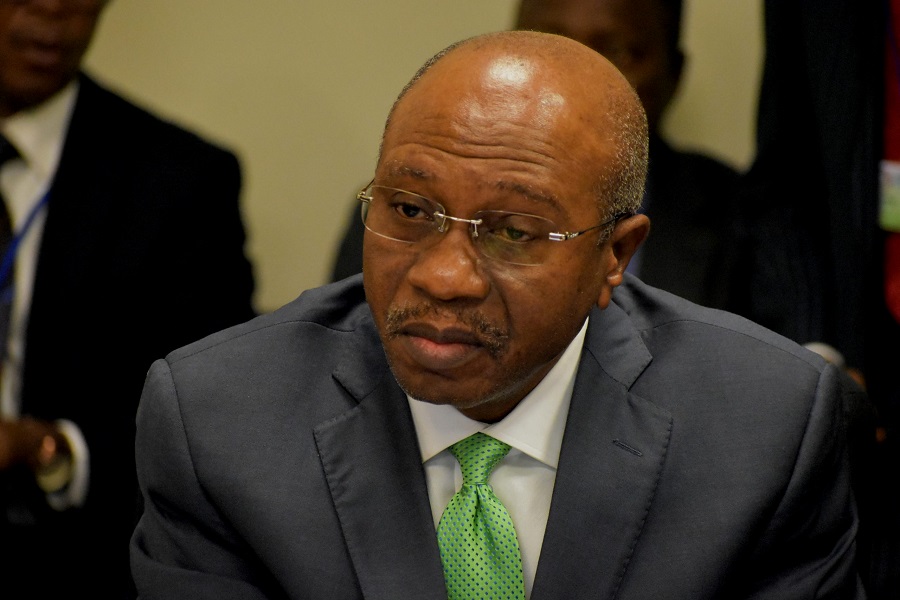Business
2022, Year Of Steep Naira Depreciation – CBN

The Naira suffered steep depreciation in 2022 with the national currency losing between at least 11 per cent and 23 per cent.
Analysis of the exchange rates’ movements showed that the naira lost 11 per cent of its value at the official market and was worse at the parallel market, where it lost not less than 23 per cent of its value.
The local currency, which started the year at N416 per dollar in January 2022 at the Investors and Exporters (I & E) Window foreign exchange market, closed the year at N461.50 per dollar, translating to about 11 per cent year on year depreciation.
At the black market, where most independent users source and trade forex, the naira closed at N735 per dollar, compared with its 2022’s opening rate of N565 per dollar.
Most analysts blamed Central Bank of Nigeria (CBN)’s policies for the currency woes as forex scarcity and speculation sustained a year-long volatility, amidst rising inflation.
The CBN had in the last one year taken major steps to stabilize the naira. The apex bank introduced the naira-for-dollar policy allowing foreign currency recipients to earn N5 for every dollar sent.
The CBN had promised that the new policy would provide Nigerians in the Diaspora with cheaper and more convenient ways of sending remittances to the country.
CBN Governor, Godwin Emefiele said the policy implementation would increase the transparency of remittance inflows and reduce rent-seeking activities.
Managing Director, Financial Derivatives Company Limited, Bismarck Rewane, attributed the naira’s continued decline to heightened forex supply shortage, demand pressure and rationing. He said naira rates convergence would require adoption of a full floating exchange rate system determined by the forces of demand and supply.
In the same vein, the International Monetary Fund (IMF) said exchange rate rigidities have constrained the economy’s ability to absorb external shocks.
The IMF insisted that restrictions on access to foreign exchange for certain categories of goods, and multiple exchange rates create distortions in both private and public sectors decision making. They discourage long-term investment, encourage smuggling and provide avenues for corruption.
Moving forward, the Fund suggested removal of foreign exchange restrictions, and a full exchange rate unification, in line with the authorities’ Economic Recovery and Growth Plan (ERGP), will help keep the parallel market premium low in a more sustained manner.
It, therefore, called for unified exchange rate for the naira to promote growth and attractive foreign capital.
According to the IMF, foreign exchange backlog and shortages are intensifying Balance of Payment (BoP) pressures insisting that exchange rate unification was imperative to reduce BoP risks. It said that fiscal deficit will stay elevated in the medium term, while additional domestic revenue mobilisation is required to reduce fiscal risks.
Global Chief Economist at Renaissance Capital (RenCap), Charles Robertson, said Nigeria is in a difficult position and needs to increase its dollar earnings and other revenue to support the naira.
Business
Agency Gives Insight Into Its Inspection, Monitoring Operations

Business
BVN Enrolments Rise 6% To 67.8m In 2025 — NIBSS

The Nigeria Inter-Bank Settlement System (NIBSS) has said that Bank Verification Number (BVN) enrolments rose by 6.8 per cent year-on-year to 67.8 million as at December 2025, up from 63.5 million recorded in the corresponding period of 2024.
In a statement published on its website, NIBSS attributed the growth to stronger policy enforcement by the Central Bank of Nigeria (CBN) and the expansion of diaspora enrolment initiatives.
NIBSS noted that the expansion reinforces the BVN system’s central role in Nigeria’s financial inclusion drive and digital identity framework.
Another major driver, the statement said, was the rollout of the Non-Resident Bank Verification Number (NRBVN) initiative, which allows Nigerians in the diaspora to obtain a BVN remotely without physical presence in the country.
A five-year analysis by NIBSS showed consistent growth in BVN enrolments, rising from 51.9 million in 2021 to 56.0 million in 2022, 60.1 million in 2023, 63.5 million in 2024 and 67.8 million by December 2025. The steady increase reflects stronger compliance with biometric identity requirements and improved coverage of the national banking identity system.
However, NIBSS noted that BVN enrolments still lag the total number of active bank accounts, which exceeded 320 million as of March 2025.
The gap, it explained, is largely due to multiple bank accounts linked to single BVNs, as well as customers yet to complete enrolment, despite the progress recorded.
Business
AFAN Unveils Plans To Boost Food Production In 2026
-

 News5 days ago
News5 days ago2026 Budget: FG Allocates N12.78bn For Census, NPC Vehicles
-

 Sports5 days ago
Sports5 days agoAFCON: Osimhen, Lookman Threaten Algeria’s Record
-

 Politics5 days ago
Politics5 days agoWike’s LGAs Tour Violates Electoral Laws — Sara-Igbe
-

 Politics5 days ago
Politics5 days agoRivers Political Crisis: PANDEF Urges Restraint, Mutual Forbearance
-

 Sports5 days ago
Sports5 days agoPalace ready To Sell Guehi For Right Price
-

 Sports5 days ago
Sports5 days agoArsenal must win trophies to leave legacy – Arteta
-

 Sports5 days ago
Sports5 days agoTottenham Captain Criticises Club’s Hierarchy
-

 Sports5 days ago
Sports5 days agoNetball ‘Project 2027’ Sets Higher Target

